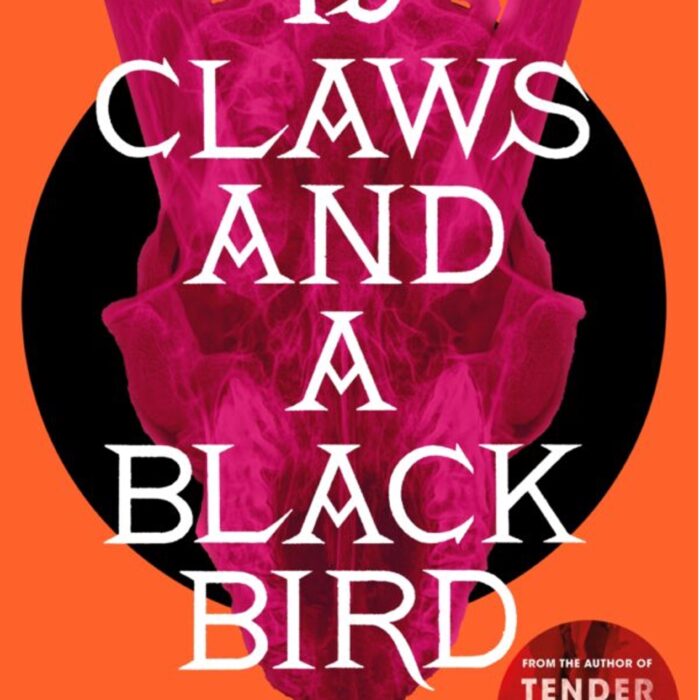You have no items in your cart. Want to get some nice things?
Go shoppingI guess the thing that appeals to me most in fiction is an emphasis on expressionism: the literary equivalent of (bear with me) the German Expressionist painters from the start of the twentieth century. Those painters broke with realist ways of depicting subject matter so that they could better convey emotion. Think of Edvard Munch’s The Scream. It’s not a realistic depiction of a man screaming, but nor is it some kind of fantasy. Munch has altered the way a screaming man would realistically look in order to try to convey a more realistic expression of a scream. To try to say, this is what a scream feels like, using colour and shape.
My favourite kind of fiction is anything that does a similar thing, albeit with sentences and paragraphs instead of oil and canvas. Prose that breaks with reality in order to address it in a way that can carry more emotional weight than straightforward realism, especially in the shorter form. Just as expressionism in painting can take many shapes, so too can expressionism in literature. I’m not trying to lump the following too closely together, but they all have this common: they break realism’s hard and fast rules to better convey human feeling. There are so many brilliant examples I could pick, but these five seem like quite a balanced bunch, ranging from the light-hearted to the heavyweight literary classic.
- Dan Rhodes – Don’t Tell Me The Truth About Love. Although it wasn’t his first to be published, this is the first book that Dan Rhodes wrote. It contains seven exquisite love stories, each altering reality to express more poignantly or more humorously the feelings of the lovers they concern. A stand out story is The Violoncello, in which a man takes it upon himself to transform into a cello to be played by the hands of the woman he loves.
- Stanley Donwood – Slowly Downward: A Collection of Miserable Stories. Stanley Donwood is probably best known as Radiohead’s in-house artist and designer of their record sleeves, but he is also a writer of short stories. You can read most of his work on his website, or order it there in print. Be warned, this stuff is as dark as midnight on Friday 13th, but it’s full of striking, nightmarish imagery that cuts straight to your spinal chord. Fingers is a good place to start.
- Jorge Luis Borges – The Book of Imaginary Beings. There are several beautifully illustrated editions of this book that it would be worth investing in, but the words themselves will paint the brightest pictures. Borges’ playfully academic style is the perfect medium for this tour-de-force of creatures drawn from the strange depths of human imagination. You can fill a spare minute by opening it to a random page and reading about a weird and wonderful animal, or you can read the book in its entirety and immerse yourself in the monsters of humanity’s subconscious. Either way Borges’ conviction is clear: these made-up animals are an important part of humanity’s expression of itself. ‘Necessary monsters,’ he calls them.
- Tim Burton – The Melancholy Death of Oyster Boy and Other Stories. This one is just plain fun (and it makes a good present if you’re ever stuck for an idea). It’s a collection of simple, rhyming poems about children with magical and ghastly problems. The Girl who Turned Into A Bed and Stick Boy and Match Girl in Love are two examples where the title says it all. The book is as much about the accompanying cartoons as the poems, but set aside half an hour to read it in one sitting and you’ll be left with that glorious, pleasantly disturbed feeling unique to Tim Burton.
- Franz Kafka – Metamorphosis and Other Stories. What can I say about this? Metamorphosis is the best short story I’ve ever read, and is justifiably as famous as it is. But the Other Stories part of this collection is remarkable too. I like dipping into the tiny pieces that make up Meditation and A Country Doctor (among these The Sudden Walk is a choice example, and Kafka in his less-publicised uplifting mode), but the dark masterpiece of the book is, for me, In The Penal Colony, in which a government inspector visits an isolated colony and is given a guided tour of the most elaborately grotesque execution contraption you’re ever likely to come across. The sense of horror as the machine is described is compounded by the pride its operator feels in it. So proud is this operator, in fact, that he is determined to demonstrate the machine’s virtues to the inspector, even if that means offering up his own body for a test run… A perfect moment of expressionist literature—Kafka’s loathing of bureaucratic systems given mechanical form—but not for the faint-hearted.
I hope you enjoy checking out some of these short works if you decide to do so. Likewise if you have any recommendations along these lines, please do post them below.

Ali Shaw
Ali Shaw is the author of the novels The Man who Rained and The Girl with Glass Feet, which won the Desmond Elliot Prize and was shortlisted for the Costa First Book Award. He is currently at work on his third novel.




